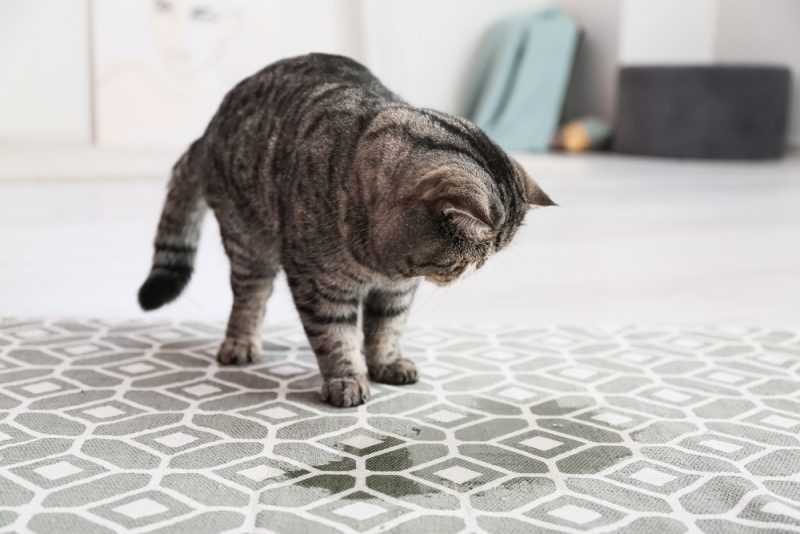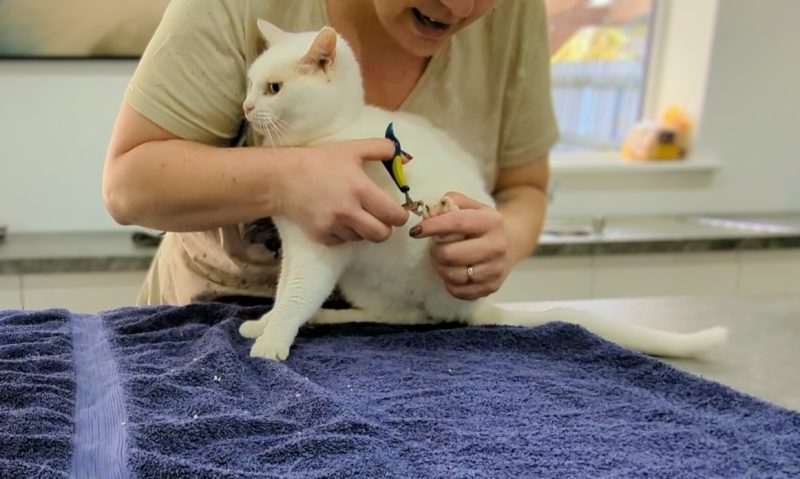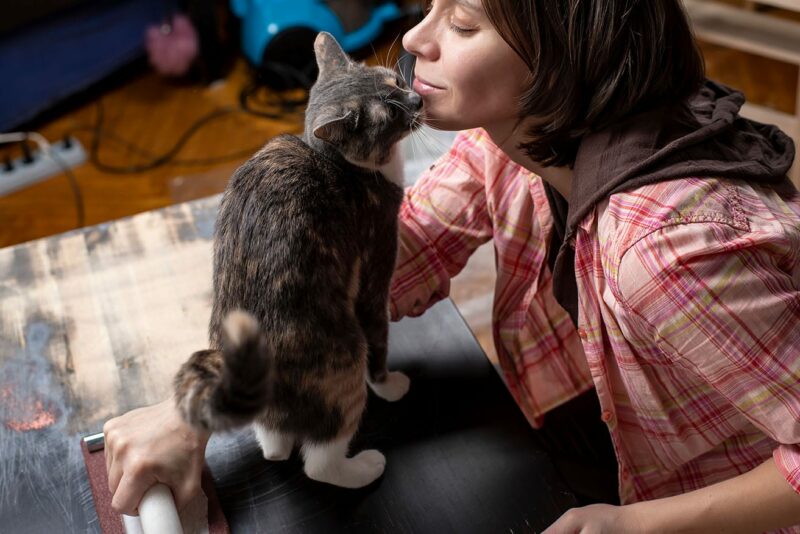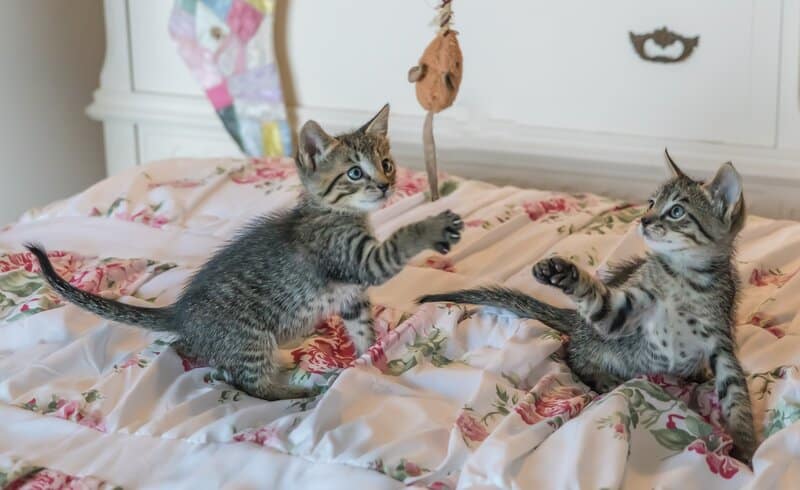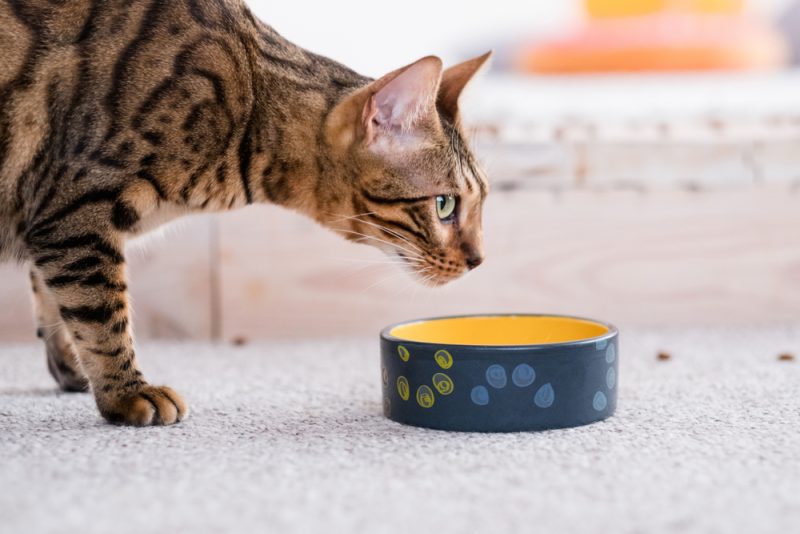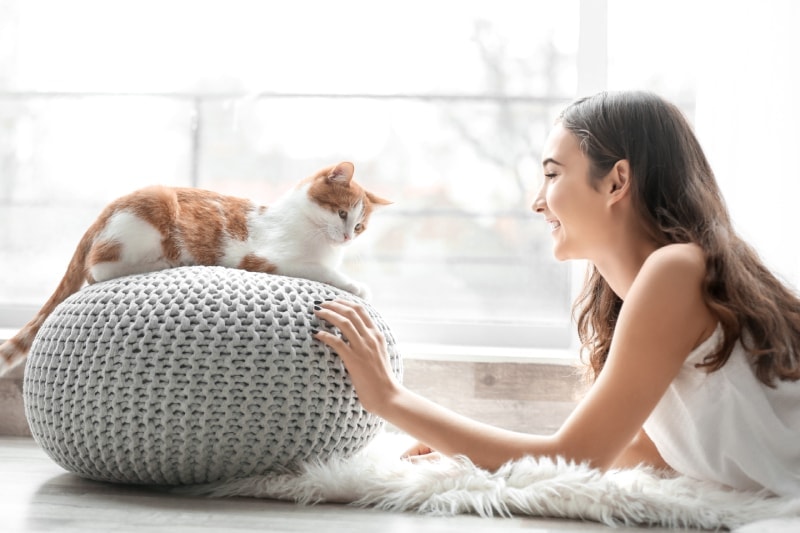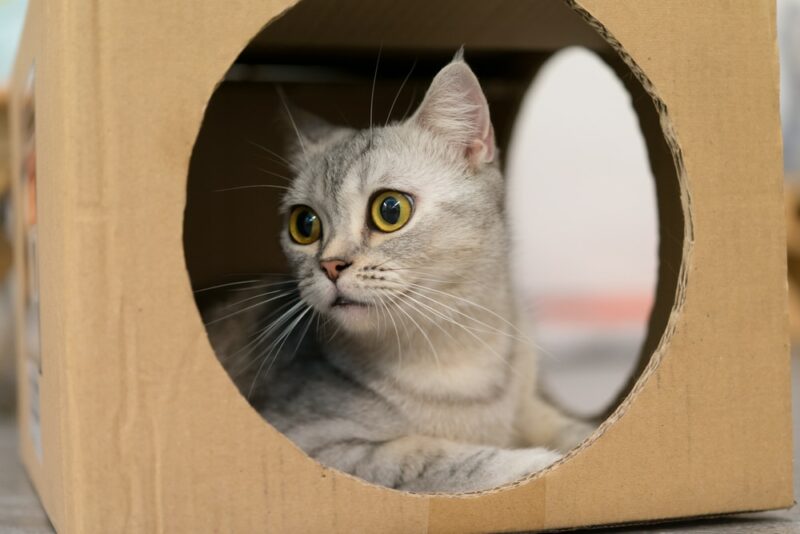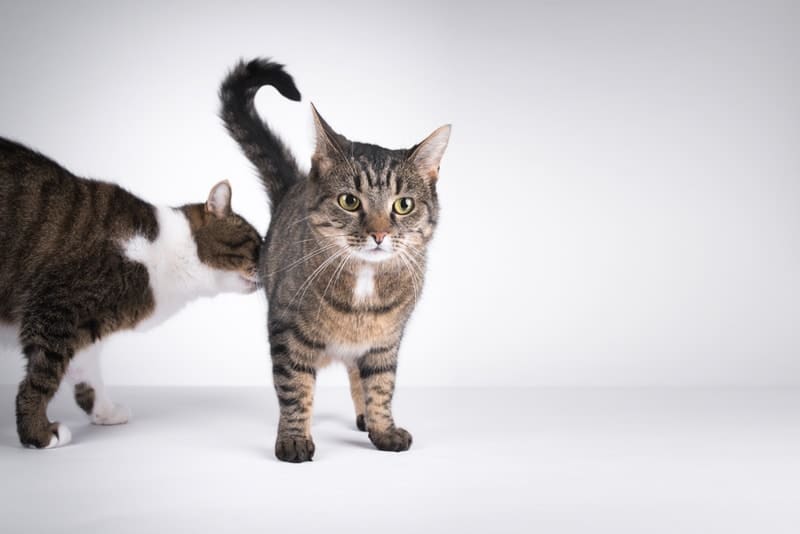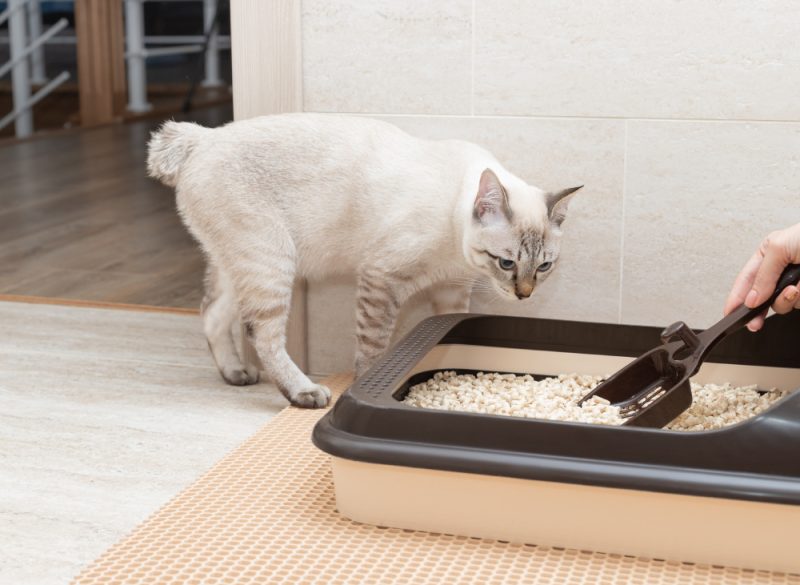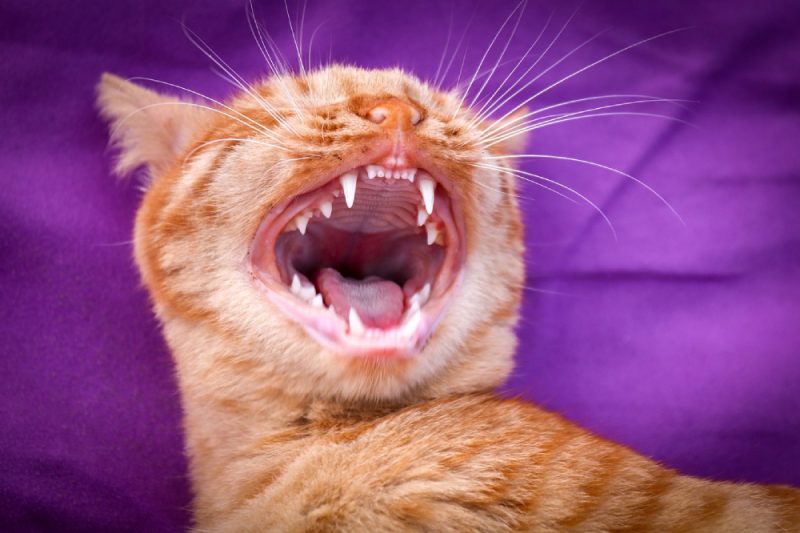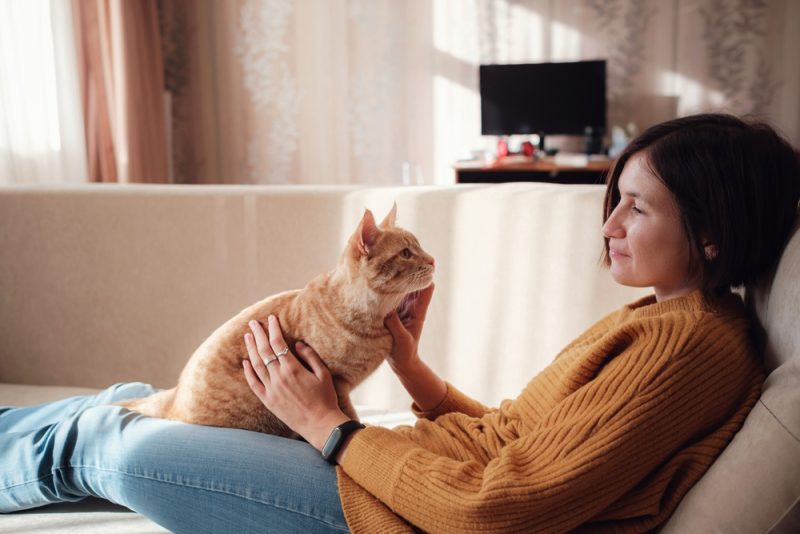While it is annoying to have your cat pee on the floor in your house, it is not entirely unheard of. Many things can cause a cat to do this, and identifying the cause of this behavior is necessary in order to begin working on fixing it.
There are medical and behavioral causes of this behavior, and it’s important to begin working toward identifying the cause before working on a fix. Some causes can indicate serious issues that require rapid intervention and care to cure. If your cat keeps peeing on the floor then read on for the potential reasons and what you can do to solve this.

The 7 Possible Reasons Your Cat Keeps Peeing on the Floor
1. Lingering Urine Smell
If a cat in your home has a history of urinating outside of the litter box, this can lead to further inappropriate urination if the urine is not cleaned properly. Cat urine can leave behind a potent smell, and cats are able to smell it even after it has been cleaned with most cleaning products. This can cause your cat to either think this particular spot is an appropriate place to pee or cause them to feel the need to mark their territory over the old stain.
This issue is easy to remedy by properly cleaning up urine stains. There are tons of commercial cat urine cleaning products that work to break down the urine, leaving little to no detectable scent behind. Most household cleaning products will not fully remove the urine stain and lingering odor, so make sure to invest in a proper urine cleaner to avoid any confusion the stain may cause for your cat.
Combating tough cat litter smells is an ongoing battle for pet parents but luckily, there are products out there designed to help! Two products that significantly reduce odors are the Hepper Litter Additive and the Hepper Enzyme Spray. At Catster, we’ve admired Hepper for many years and decided to take a controlling ownership interest so that we could benefit from the outstanding designs of this cool cat company!
Image
Product
Details
Best Enzyme Cleaner
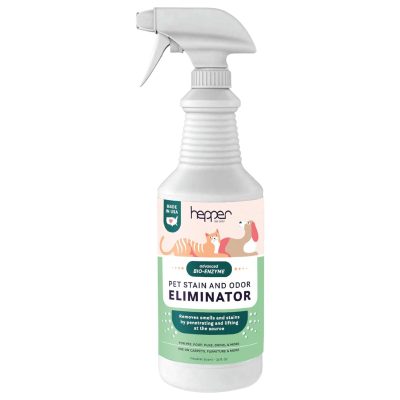
Hepper Advanced Bio-Enzyme Pet Stain & Odor Eliminator Spray
CHECK PRICE
Best Litter Additive

Advanced Bio-Enzyme Cat Litter Deodorizer
CHECK PRICE
2. Litter Box Issues
Cats can be very particular about their litter box, and for some cats, some environmental changes can lead to them refusing to use the litter box. This can be as simple as changing the type of litter or the box itself for a new one. Sometimes, when cats have medical conditions that make using the litter box uncomfortable, they may begin urinating or defecating inappropriately. This is because the litter box becomes associated with pain or discomfort, and in their cat brain, going elsewhere might take away some discomfort.
If you think that litter box issues may be what’s causing your cat to pee on the floor, begin working through any recent changes related to the litter box. If you’ve recently changed the litter or the litter box, or moved the box to a new part of the home, try undoing the changes to see if this encourages your cat to pee in the box again. If that doesn’t fix the issue, talk to your vet about potential causes and treatments.
3. Lack of Access
If your cat can’t physically access their litter box in time, it might lead to accidents on the floor at times. This is sometimes seen in houses with multiple floors, and a litter box on only one level. A cat new to such a house might sometimes not be able to make it to the litter box in time.
Ensure your cat has access to a litter box at every level of the house. When introducing your cat to new rooms within the house for the first time, temporarily place them in the litter box so that they’re allowed to learn its whereabouts.
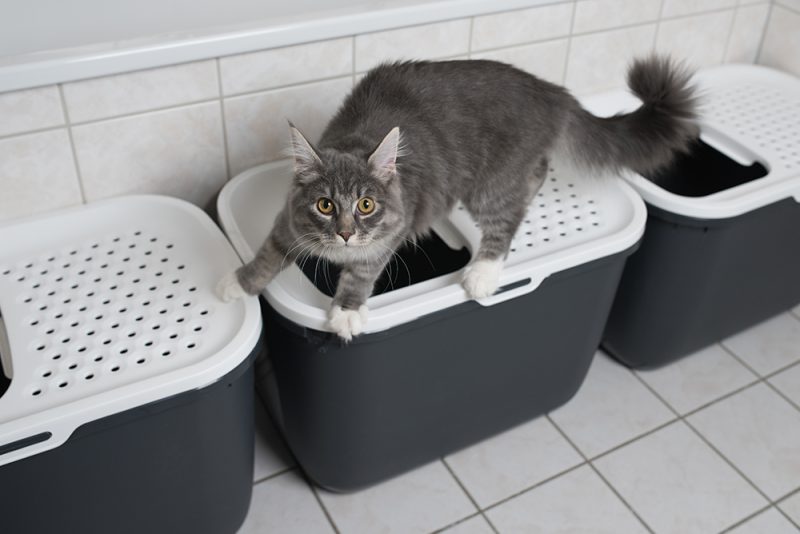
4. Litter Box Disagreements
If you have multiple cats, one or both of them may begin peeing on the floor due to a disagreement over the litter box. If one of your cats is showing territorial behaviors surrounding the litter box, it may lead the other cat to look for another place to urinate. Territorial behaviors like this are more common when one cat is new to the home, but sometimes they can develop suddenly as well.
Work to identify the cause of the behavior. If one of the cats is new to the home, for example, begin working on proper introductions between the cats. You should also make sure you have enough litter boxes for the number of cats you have. The rule of thumb for litter boxes is one litter box per cat plus one extra, so for two cats, you should have at least three litter boxes. Aim to have at least one litter box on each level of your home as well.
5. Reduced Mobility
As cats age, they may begin developing arthritis and other conditions that can lead to reduced mobility. This can lead to inappropriate urination if your cat is having difficulty getting into and out of the litter box. If your cat is experiencing reduced mobility, you may also see them having difficulty jumping to or from high surfaces and furniture and spending less time being up and moving around throughout the day.
Arthritis and other physical changes associated with aging and injury can often be treated or supported medically. There are prescription medications (available from your veterinarian) to help keep your cat comfortable, as well as supplements that can help improve joint health and mobility with regular use. Some supplements can also help prevent or reduce further deterioration of mobility.
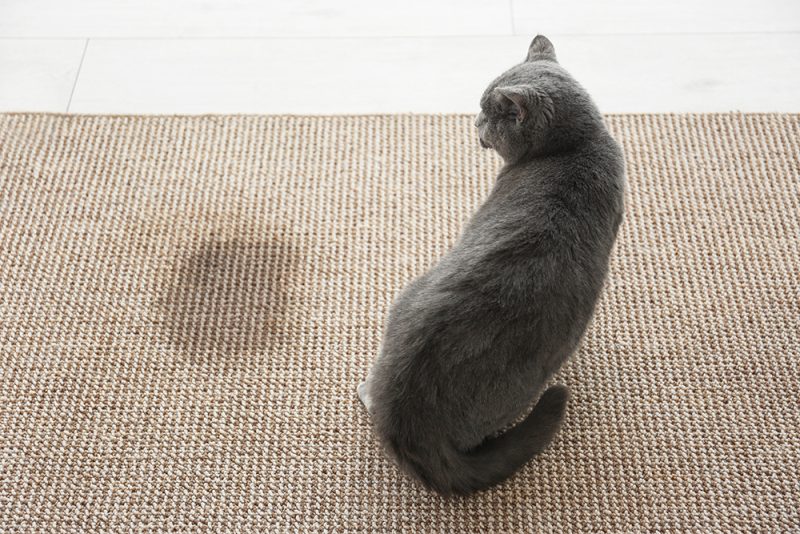
6. Cognitive Decline
Some cats may experience cognitive changes (akin to dementia) as they age, which can lead to inappropriate urination. Some cats may forget where the litter box is or how to properly use it, while others may lose the ability to determine when they are urinating. Sudden episodes of apparent dementia are not a normal part of aging for most cats and require veterinary attention.
If your cat is showing dementia-like forgetful behaviors, they will usually not be specific just to using the litter box. You may see head pressing, circling, getting stuck or lost in places the cat is familiar with, pacing, and excessive vocalization. These behaviors warrant a vet visit.
If you need to speak with a vet but can't get to one, head over to PangoVet. It's an online service where you can talk to a vet online and get the advice you need for your pet — all at an affordable price!
7. Medical Causes
There are a large number of medical reasons a cat may start peeing on the floor. These include, but are not limited to: issues with the reproductive tract (especially in intact females), kidney diseases, other feline lower urinary tract diseases (including UTIs), diabetes, and cancer.
Any new behaviors of peeing on the floor should be a cause for a vet visit. Since there are so many medical causes of this behavior, your vet will need to rule out these medical causes. Most of the medical causes have better outcomes with early diagnosis and treatment, so it’s best to start by assuming you’re dealing with a medical cause of this behavior. Your vet will be able to rule out medical causes and guide you in determining a treatment plan if the cause is determined to be behavioral.

Conclusion
There are several medical and behavioral reasons your cat may be peeing on the floor, and some cats may be experiencing multiple types of issues that are all leading to the behavior. The best starting point is always a vet visit to rule out any medical causes of the behavior and to ensure your cat gets the appropriate treatment needed for the cause.
Featured Image Credit: Pixel-Shot, Shuttershock
